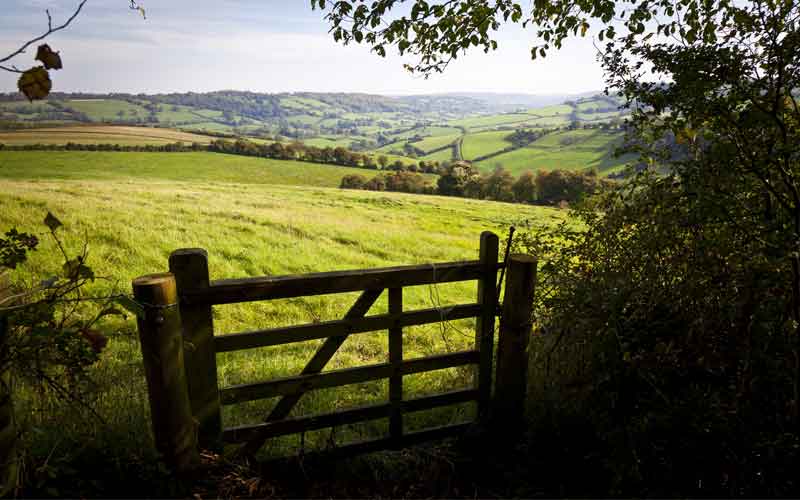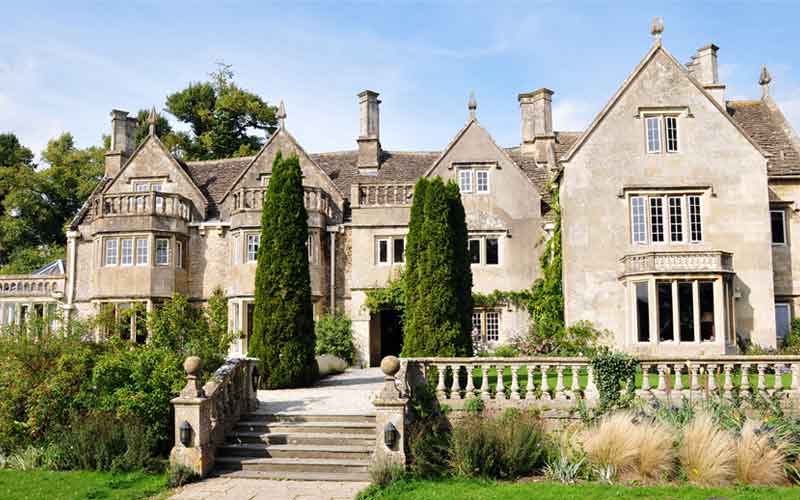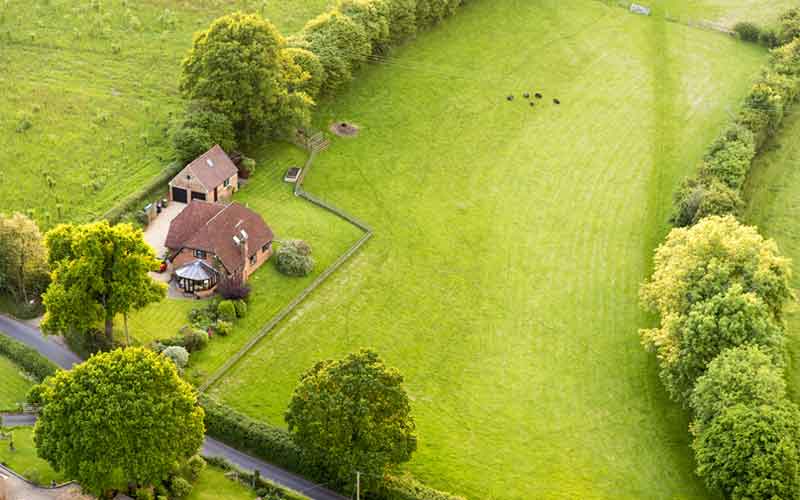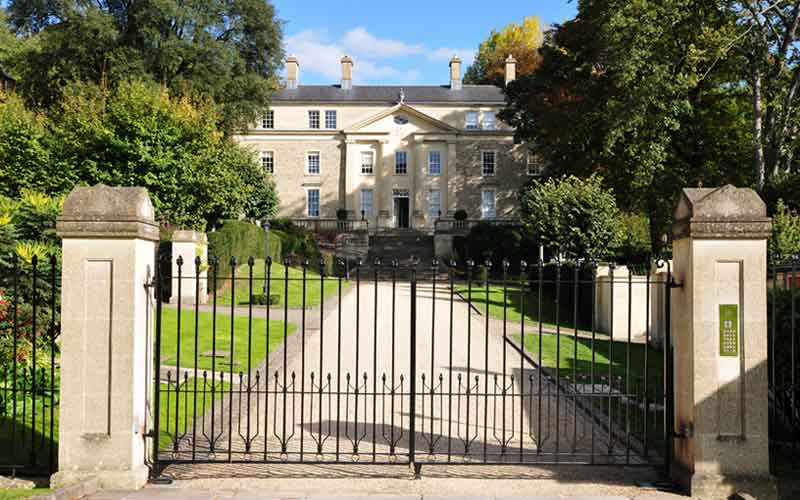The Countryside Strikes Back – crucial considerations for moving to the country
If coronavirus has proved one thing, it's that Samuel Johnson was wrong when he said: "When a man is tired of London, he is tired of life". If anything the opposite is now true. With the bright lights of city living suddenly dimmed, the fresh air and open spaces of the countryside have never felt more attractive. Of course, there's nothing new about wishing to escape the dark Satanic mills for England's green and pleasant land but the past few months have put a new complexion on this well-trodden path by showing that working remotely is not only possible but desirable and responsible too.
The purpose of this article is to explain how aspiring landlords and buyers/renters can take advantage of this opportunity. We've identified four key areas to be aware of – tax, planning, rural conveyancing and energy & services. Please note that this is an overarching guide designed to signpost the possibilities and issues rather than resolve them. You should always seek professional advice before dealing with these matters.
Tax
Your new property might come with a few fields or barns. Not only is it reassuring to control your immediate surroundings where possible, but owning agricultural land also carries potentially huge inheritance tax advantages under Agricultural Property Relief (APR) and Business Property Relief (BPR). This is a complicated and fluid area so we set out the basic principles here as an overview.
APR gives 100% inheritance relief on the agricultural value of property (ie you won't get relief on the value of a field's development potential, only its worth for growing barley or grazing cattle). Fields are a solid bet for APR making agricultural land a sensible investment (compared to stocks and shares, for example) if you have extra money to use and/or you're concerned about passing assets on your death. You can also make money from farming or renting them while you're alive. The downside is that, for these very reasons, agricultural land is expensive. APR on buildings is trickier. You need to show that you're actually using them for farming purposes, which is a stretch unless your business is partly or wholly agricultural.
BPR is another inheritance tax exemption applying to assets (including land) used in 'business'. It is attractive because it sometimes catches assets and value that fall outside APR. If you farm the land yourself you can get BPR relief on its whole value, not just its agricultural value. It's also possible to obtain BPR on non-business/non-agricultural assets (such as a house) providing they sit within an overall estate that carries on a sufficient level of business.
Letting the land for someone else to farm can be an attractive option. But let land is not eligible for BPR and you have to own the land for seven years before you're eligible for APR, compared to two years for BPR or APR when you farm the land yourself. Finally, to make the most of these tax exemptions it is wise to update your will to deal with the APR/BPR assets separately.

Stamp Duty Land Tax
Stamp Duty Land Tax (SDLT) is a tax on land transactions payable by the buyer. You will almost certainly have to pay it if you buy a country property and possibly if you lease. Various factors contribute to your SDLT liability including the value of the property/lease and whether you're a first time buyer or it's your second home.
There are also some specific SDLT reliefs that often apply to countryside properties. When you buy two or more properties at once (for example, a main house plus cottage) you can claim Multiple Dwellings Relief meaning your SDLT is calculated according to the average price rather than the combined price of the two properties. Or, if you're buying a residential property together with non-residential property (a house plus some fields, for example) then your SDLT will be calculated at the mixed rate, which is lower than the residential rate.
There's no need to worry about the detail here. Your solicitor will calculate your SDLT and arrange payment. But it is worth being aware that these reliefs might be available and, as far as possible, to structure your transaction to maximise them.

Planning
The increased space afforded by country living opens new possibilities to alter your property to live and work in the way you'd like. Landowners meanwhile can substantially increase the value and opportunities of their properties with the right permissions. Ideally your works won't require full planning permission, either because they don't change the building use or are allowed under permitted development rights.
The good news is that everyone can make a home office space within their existing dwelling. You don’t need a change of use consent providing the underlying residential character of the building remains, although structural additions/changes will need approval. Running an entire business from home is a bit greyer and, in this case, how often people come and go is one factor that can make a difference – for example, running a barber shop with customers arriving on the premises for their haircut may be more likely to require a change of use than running an online-only language school.
We predict there will be a movement among more ambitious landlords to build rural offices, away from people's homes. Agricultural barns are a prime candidate. Communal rural offices, along the WeWork model, may spring up to offer companionship and a reason to get out of the house. Landowning estates could give them a kickstart by moving their estate office or events department there and hope others will follow. Smaller agricultural buildings (up to 500m²) can be converted to offices under permitted development. Anything more than this will require planning permission.
Following the expansion of permitted development rights in 2018 it is easier to convert an agricultural building into a residential property as well, subject to compliance with certain conditions and floorspace limits. Landlords should explore the possibilities and consider applying for planning permission even where themselves don't propose to do the works – it can add up to 10% to the property value.
Remember that many rural properties are listed or in national parks or special conservation areas, in which case extra care should be taken as the rules are even more strict. Permitted development rights do not apply to listed buildings.

Rural conveyancing
In some respects, the process of buying a forest in Northumberland is the same as buying a loft in East London. In other respects it is quite different.
Rural property is typically larger, older, more isolated and the setting for a more diverse range of activities than its urban counterpart. In short, there's more that could go wrong and, consequently, the enquiries you should make before buying are more extensive and take longer. For instance, it is relatively common for rural properties not to be connected to mains water, in which case you need to make sure the water supply is safe and reliable. Or you could find out too late that the South Downs Way runs through your garden or the frackers are next door. Flooding is another important one for obvious reasons. A decent solicitor and surveyor will bring all these matters to your attention and advise you accordingly. They may uncover details that will be grounds on which to pull out of the deal altogether or adjust the price.
Agricultural land carries its own complexities. You need to know whether there are agricultural subsidies with the land and, if so, what to do with them. Crucially, make sure you know whether there are any occupants or tenants on the land and buildings you're buying. Some agricultural tenants have strong rights that can be impossible or expensive to extinguish, diminishing the value of the land and your agency over it.

Energy and internet
For utilities, country living offers more challenges and opportunities than the city. Electricity, heat and internet are the big three to focus on. Landlords should consider upgrading their properties before sale/renting while buyers should think carefully about how their electricity, heat and internet might be improved.
- Electricity - although the grants for renewable energy projects have dried up, it still generally makes economic (not to mention environmental) sense to install your own solar panels and/or wind turbine. With more space than in the city, there is increased scope to do this and planning authorities are generally amenable. The capital costs are substantial (although coming down), however, you may be able to sell excess power into the grid and if you are working from home and/or running renewable heat infrastructure (see below) then your energy use will increase making it even more efficient.
- Heat - the average country house is colder than the average town house. But, as with electricity, there are more opportunities to do something about it through air/ground source heat pump, or biomass boilers. Unlike electricity, there are some subsidies still available and people should take advantage of the Domestic Renewable Heat Incentive scheme while it lasts (which may not be for much longer). The running costs of this kit is also far lower if you're generating your own electricity. Meanwhile, supplying the fuel for biomass boilers is an opportunity for landlords who may be well placed to provide the woodchip fuel.
- Internet - reliable, high speed internet is an absolute must for anyone planning to work from home and no professional should overlook this on purchasing. Unless you're very remote, slow internet is generally fixable – providers and local consultants are best placed to advise. Sometimes it makes sense for landlords/communities to coordinate and, for example, lay fibre cable that will benefit multiple properties.
On buying/renting, the seller/landlord will provide an Energy Performance Certificate (EPC) showing how energy efficient the property is and where it could be improved. Landlords should also keep in mind that it's illegal to rent out a property with an EPC rating lower than E.
Finally, if you buy a decent piece of land with your country house, there may be scope for a solar farm or commercial wind turbines – in March this year the government removed its block on onshore wind farms. These projects can generate serious rewards but they are complicated to arrange and generally done in partnership with an energy company.

Final thoughts
For the past decade the smart money held that WeWork, hot desking and even more glass skyscrapers would reshape our Monday to Friday. In fact, it seems likely barn conversions in England's humble shires may be the future. Beyond enhanced quality of life and lungs, home working eliminates dreary commutes and a scattered workforce is better able to meet clients and contacts in all but the most London-centric industries. Herein lies the fresh opportunity – if rural landlords can provide attractive houses and decent office space they will find a new, wealthy and ready market for their properties.
If you are considering a move to the country or looking to convert or rent out your rural property please do get in touch with our Landed Estates team.
A PDF copy of the article above is also available to download here.
Disclaimer
The current global crisis is evolving rapidly, and the rules and guidance for individuals, companies and other entities to manage its implications are similarly fast moving. Notes such as this may be out of date almost as soon as they are published. If you have any questions prompted by this article or on any other matter relevant to you, please get in touch with your usual contact at Forsters.

